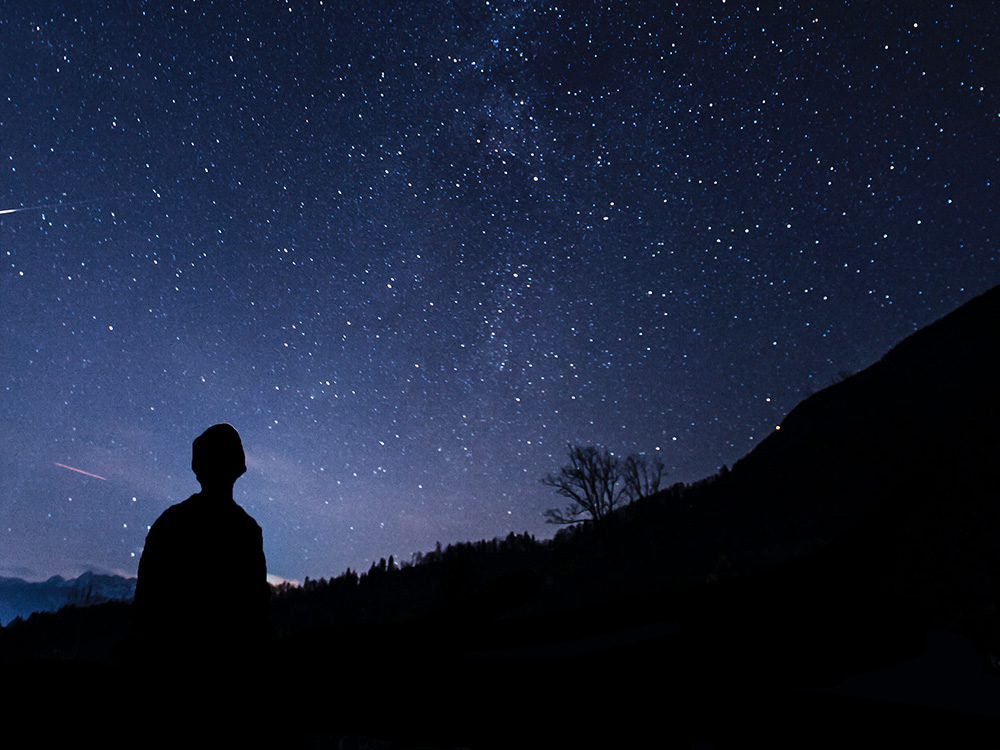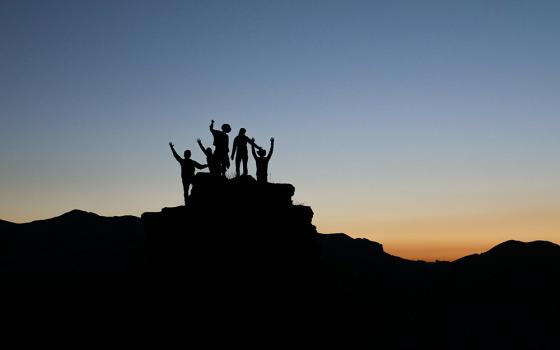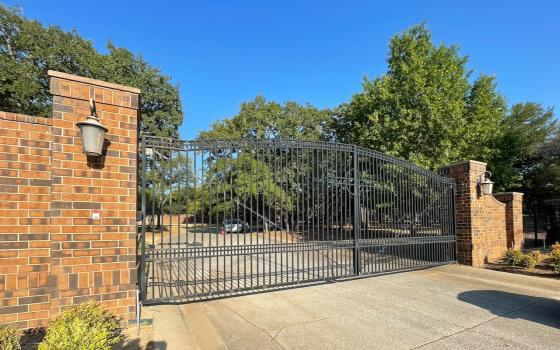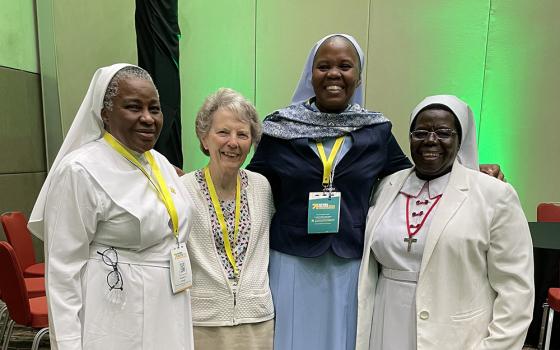
(Unsplash/Klemen Vrankar)
Somewhere I read the oft-repeated story that early in the 1930s Albert Einstein dropped in on Edwin Hubble at Cal-Tech to verify Hubble's mind-blowing evidence that the universe was expanding. Humans were putting their ever-ancient, ever-new curiosity into play with fancy and fancier-looking glasses. The scientific wizards of the day were scratching each other's heads as they peered into the deep above with incredulous eyes.
It had been three centuries since Galileo prompted humans to examine their long-running role as masters of the universe. After he moved Earth off center-stage of the known universe and into its proper third position orbit around the Sun, consequences were literally cosmic — for Galileo personally as well as all humans, snug in our self-centered institutionalized certainties.
That shift in the planet's cozy central position jiggled the regal crowns and loosened the teeth of every anthropocentric hierarchy we had put into place and then taken for granted as if it were carved by divine chisel into monolithic stone. Something new was in play.
In 1938, Thornton Wilder's Pulitzer Prize-winning play "Our Town" was first performed at the McCarter Theatre in Princeton, New Jersey. Rereading it recently, I realized that many seeds for the consciousness we're struggling to act out of today may have been germinating back then.
For example, one of the "new" habits, at least practiced in many women's religious communities today, has been to recognize the ancestral peoples on whose land we live and work. We will usually begin a gathering by declaring our gratitude to the folks, flora and fauna who came before us.
In the play, the Stage Manager, one of the principal characters, feels it is important to place the drama in proper context, and invites the town's historian to locate Grover's Corners, New Hampshire — where the play takes place — on the planet.
Professor Willard speaks of the geological foundations on which the town is built: "A shelf of Devonian basalt crosses Pleistocene granite with vestiges of Mesozoic shale and some sandstone outcroppings ... two hundred, three hundred million years old."
He mentions the Native peoples who lived there way before New Hampshire was a state: "Early Amerindian stock, Cotahatchee tribes ... now entirely disappeared — possible traces in three families."
Mr. Gibbs, editor of the local newspaper is also asked to speak about the town's demographics: population, political and religious affiliations. He's asked if there's much drinking in the town; is there any culture; any concern for "social injustice and industrial inequality?" All still pressing issues so familiar in our towns and all across our globe today.
Advertisement
Another character, Rebecca Gibbs, a stereotypically bothersome little sister, interrupts her brother George (while he is doing homework with his sweetheart, Emily) to tell him of a letter Jane Crofut received from her minister. It was the envelope that caught Rebecca's attention. It was addressed to: "Jane Crofut; The Crofut Farm; Grover’s Corners; Sutton County; New Hampshire; United States of America; Continent of North America; Western Hemisphere; the Earth; the Solar System; the Universe; the Mind of God."
Rebecca's wonder situates the play cosmically and metaphysically. She raises some of the same prickly questions with which we are still preoccupied. Where do we really live? Who are we? Is our place in the huge universe significant?
The play zooms into the dearest minutiae of life, and embraces the huge reality of death. It zooms out to place the story in the context of a particular geological age, and historical period. Specific small-town life in Grover's Corners, New Hampshire, takes its place amid the stars.
Oh Earth! Wherever you are — just the perfect distance from the sun — entrusting us with everything we've ever loved and longed for.
If you recall the Wilder play, by Act III, Emily Webb, young bride of Act II, has died in childbirth. She asks to go back to earth for one day. Against the advice of the elders in the cemetery, Emily returns to relive an ordinary day — her 12th birthday. She very quickly realizes that the living do not appreciate or even see the simple, fleeting wonders of earthly life.
"I can't. I can't go on. It goes so fast. We don't have time to look at one another." She asks the Stage Manager to take her back to the cemetery, and turning to the audience, she gives the memorable lament:
Goodby, Goodby, world. Goodbye, Grover's Corners ... Mama and Papa. Goodby to clocks ticking ... and Mama's sunflowers. And food and coffee. And new-ironed dresses and hot baths ... and sleeping and waking up. Oh, earth, you're too wonderful for anyone to realize you.
We might come away from the play asking: What will we miss of Earth's goodness and beauty?
We might turn to Earth and see a planet in distress, and hear the cry of her creatures.
But on this Earth Day 2023, I am heartened by the words of Belgian physical chemist Ilya Prigogine: "When a system is far from equilibrium, small islands of coherence can shift the entire system."
We might make of the tiny islands of our lives and local communities something beautiful — a coherence that could expand across the globe — and keep on flowing.
We might wake up wherever we are today, take time to see who's right here with us, and repeat together with humblest eloquence:
Oh, Earth, you're much too wonder-full for anyone to realize you.








